My trip will focus on continuing on a 17 week Neonatal Intensive Care Unit Nursing training program. My trip will be covering weeks four and five of this training.
Along with training the nurses, ourvgroup is certifying a neonatal nurse educator at St. Paul Hospital in August and this training is serving as part of her practicum. She will be heading further NICU nursing training and mentoring other educators. This will help with the sustainability of the training.
These two are the first of their kinds in Ethiopia and they are a follow up of the Neonatal Advanced Life Support training that Wax and Gold has implemented at St. Paul Hospital Millennium Medical College(SPHMMC). This Specialized Neonatal ICU Nursing training program is the first of its kind in Ethiopia.
The trip is specifically for neonatal ICU nurse training. Benefits will be empowering nurses through education and training, capacity building at SPHMMH for better outcome for newborns and setting up SPHMMC as a center of excellence where other facilities can send their nurses for specialized NICU training and improve Neonatal healthcare in Ethiopia.
Along with training the nurses, our group is certifying a neonatal nurse educator at St. Paul Hospital in August and this training is serving as part of her practicum. She will be heading further NICU nursing training and mentoring other educators. This will help with the sustainability of the training.
These two trainings are the first of their kinds in Ethiopia and they are a follow up of the Neonatal Advanced Life Support training that Wax and Gold has implemented at SPHMMC and has significantly improved newborn mortality and morbidity.
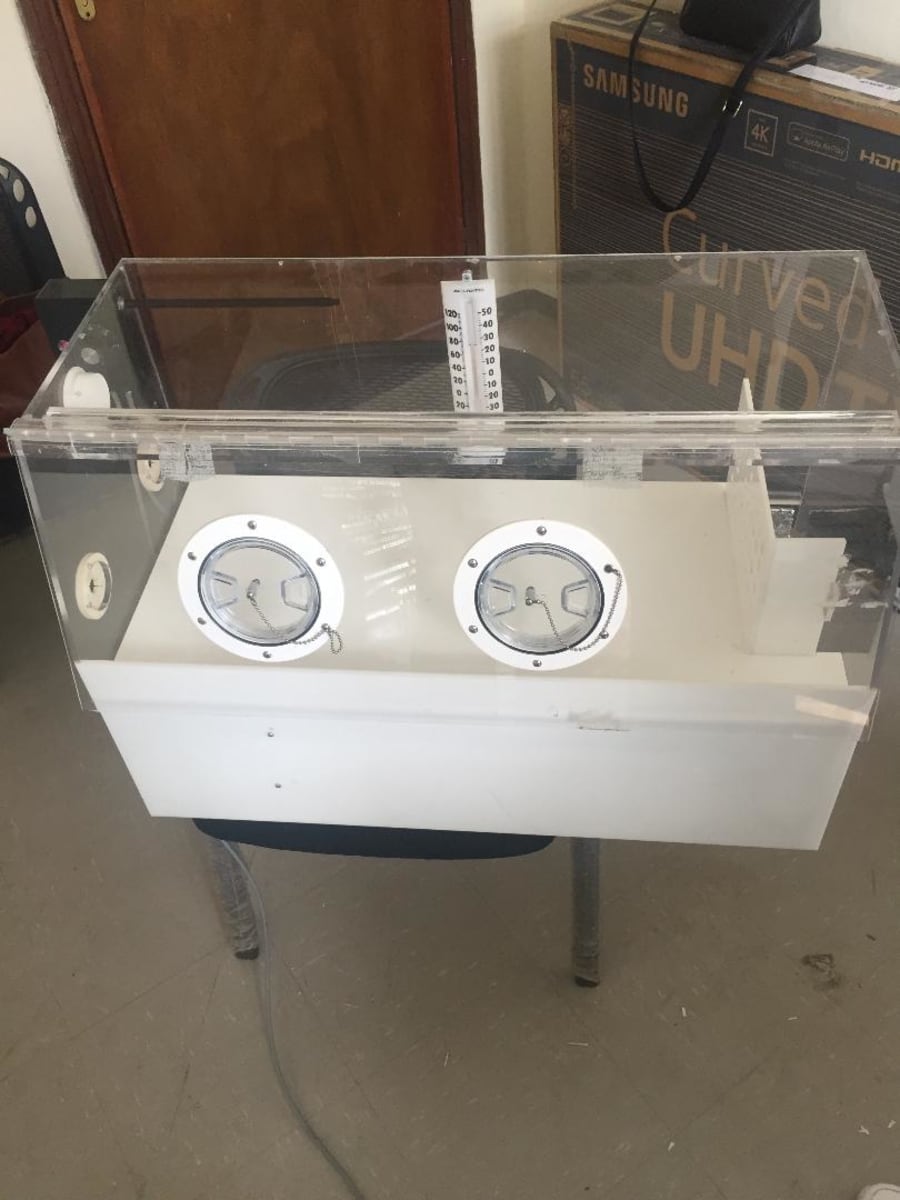

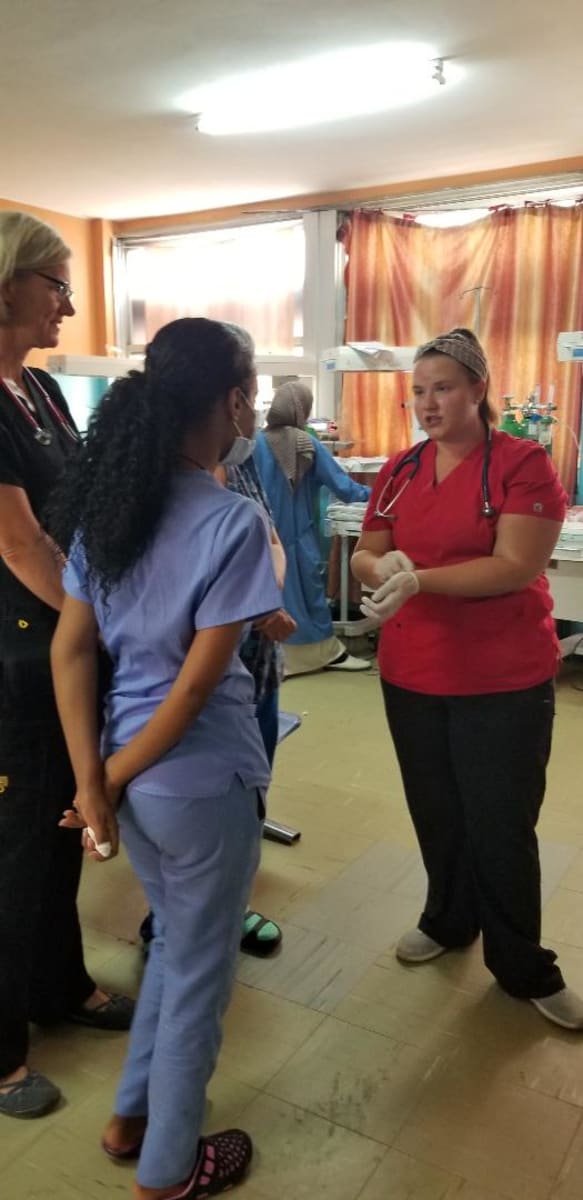






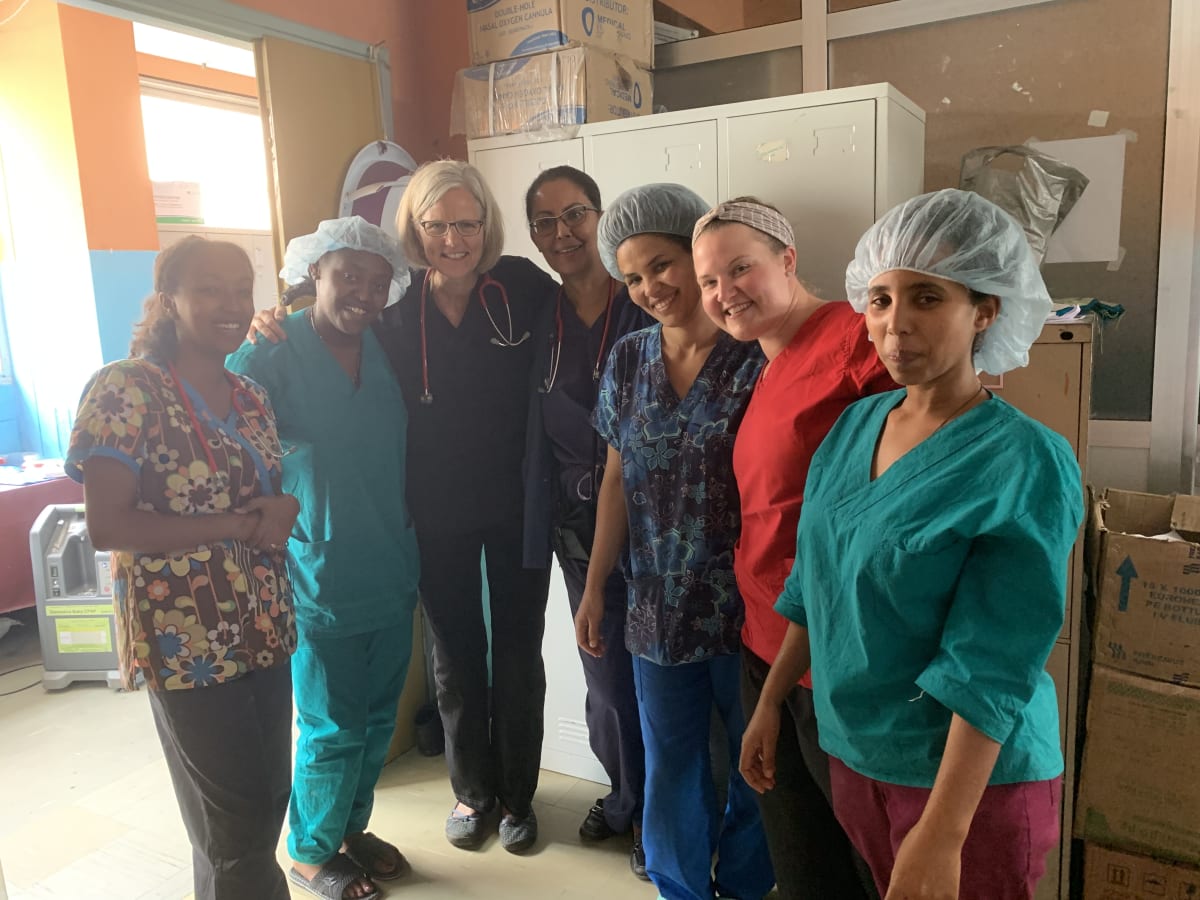





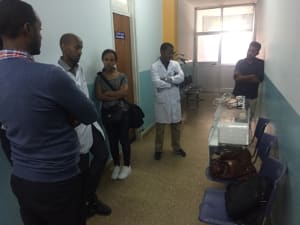

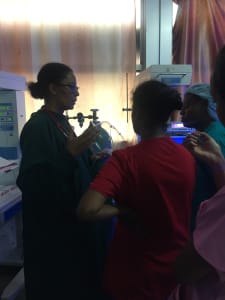




Improving quality of health care to Newborns and their mothers through education and capacity building has been the main goal of the Wax and Gold-SPHMMC collaboration.
St. Paul’s Hospital Millennium Medical College has the largest high-risk maternity service in the Ethiopia with over 12,000 deliveries annually. Our group, Wax and Gold, a nonprofit organization has been collaborating with St. Paul’s Hospital for over four years now in different maternal neonatal health improvement projects. Multiple volunteer groups travel to Ethiopia throughout the year working on ongoing projects. The team that traveled with me in July consisted of myself and two NICU nurses.
Our focuses during this trip included continuation of a 17-week neonatal ICU nurse orientation curriculum with 12 nurses going through the training currently. Training included pre-test, classroom lectures, simulations, hands on bedside training, and post-test. Once these nurses complete their training, they will be the lead nurses where each will mentor three to four nurses in the unit as the orientation continues for the rest of the nurses. Going forward, all new NICU nurses will go through this orientation prior to starting work in the NICU.
WAGI, is also training and certifying the first clinical nurse educator in Ethiopia. Once she is certified, she will be responsible for nursing education in the NICU. This trip served as mentorship for her. She assisted the group in all aspects of the nursing education.
As usual, we spent time in the NICU in direct patient care and mentoring the pediatric resident and nurses. We also did thoracentesis insertion simulation training for the neonatologist and pediatricians.
However, the highlight of the trip may have been our collaboration with a local biomedical engineer on locally built neonatal transport incubator. Hypothermia is a major morbidity and mortality factor for neonates at SPHMMC specifically and Ethiopia in general. With over 5000 NICU admissions a year, and with over 75% of these admissions being from other facilities as close as 30 minutes or as far as several hours, most of the infants transferred from other facilities experience hypothermia and its detrimental effects. These locally manufactured transport incubators are planned to be used for transporting neonates from the facilities where they are born to the referral hospitals. We completed building the prototypes, tested them and presented the project to the SPHMMC and kolfe health center leadership. Kolfe health center will be the pilot site.
Once we had a buy in from the two institutions, we presented it to the Addis Ababa health Beauro (the administrative body for the health centers in and around Addis Ababa).
The cost of these transport incubators is about $500. A lot less than what it would cost to import from abroad and more importantly, since they are built in Ethiopia, they will be sustainable.
I would like to thank the Doximity Foundation for supporting my travel